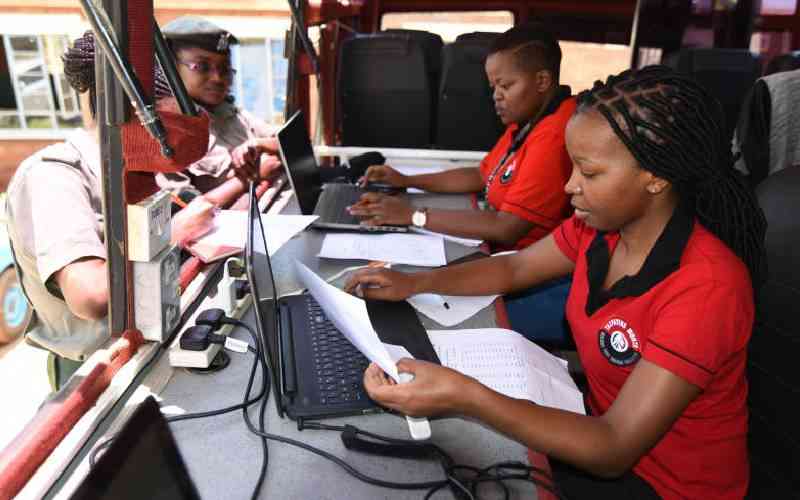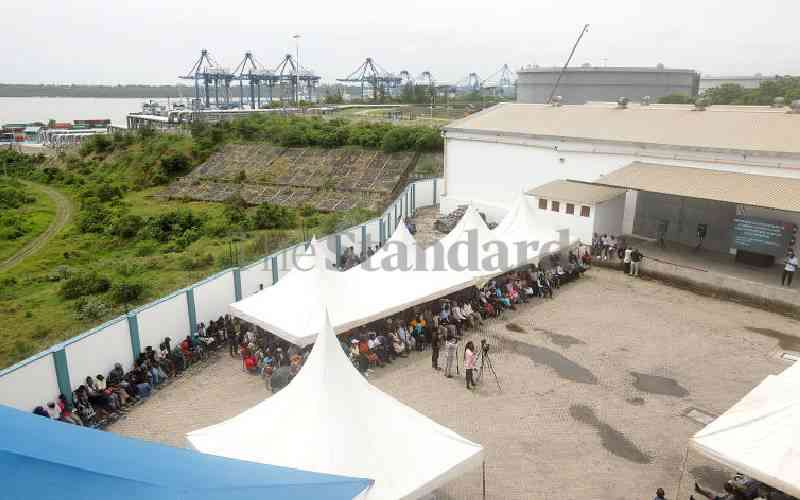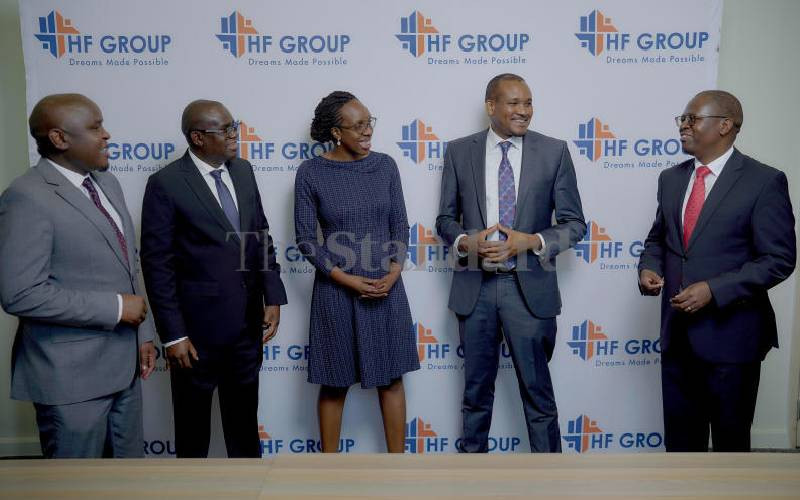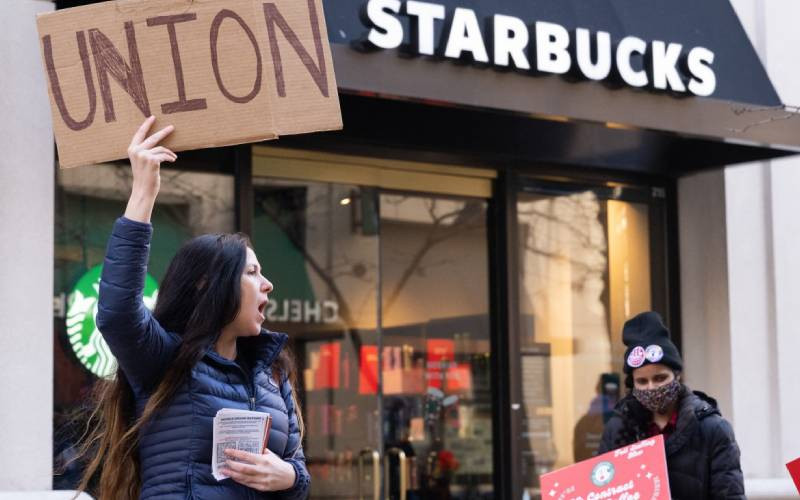
President William Ruto will rally African Presidents on Monday to champion for reform of the international financial system to allow countries like Kenya vulnerable to climate calamities and global financial shocks to access more funding from rich nations and multilateral development institutions.
During the landmark conference in Nairobi, organised by a pivotal World Bank fund that assists the lowest-income nations, President Ruto is expected to lead African Presidents to showcase how the international financial system is skewed to benefit wealthy countries and should be reformed to ensure equitable distribution of resources to developing countries.
“The Government of Kenya will be hosting African Heads of State and the World Bank to identify key priorities for financing in Africa and champion an ambitious financing replenishment of IDA resources - or IDA21, as the current replenishment cycle is known - that would support transformational development objectives for the Africa region,” said the World Bank in a statement ahead of the crucial meeting.
International Development Association (IDA) money comes largely through grants and low-cost loans. Normally, donors and borrowers come together every three years to replenish the fund. Experts have often called on donors to “go big” in the cyclical funding rounds, as low and middle-income countries like Kenya face some of the toughest challenges - such as stalled economic growth.
World Bank President Ajay Banga called on member countries to make the next replenishment of the lender's fund, warning that the IDA was being pushed to its limits by increasing demands.
Banga said World Bank shareholders, donor countries and philanthropies needed to dig deeper to help IDA deliver "better development outcomes" to low-income countries.
"The truth is we are pushing the limits of this important concessional resource and no amount of creative financial engineering will compensate for the fact that we need more funding," Banga told a conference in Zanzibar, in December.
- Ruto remains mute as healthcare crisis worsens
- Government calls on KMPDU to end strike
- Ruto going against KK manifesto, unions say
- Go back to work, Ruto tells striking doctors
Keep Reading
"This must drive each of us to make the next replenishment of IDA the largest of all time."
The current, IDA funding round is due to be completed on June 30, 2025.
Established in 1960, IDA aims to reduce poverty by providing grants and zero- to low-interest loans for programmes that “boost economic growth, reduce inequalities, and improve people’s living conditions” according to the World Bank.
President Ruto earlier called for a spirited push for the reform of the global financial architecture including the global credit rating system, joining a growing chorus of regional countries and international bodies agitating for the overhaul of the global credit market.
The President in the past said the move would boost accurate assessments of African countries.
The reform of multilateral development banks has been a topic of debate in recent months after developing countries like Kenya faced mounting pressure from inflation, energy and food shortages fueled by Russia's war in Ukraine, slowing growth, mounting debt burden and growing vulnerability to climate shocks.
The pressures have laid bare the inadequacy of the Bretton Woods institutions including the World Bank and International Monetary Fund's (IMF) structures - designed at the end of World War Two to focus on rebuilding peacetime economies - to deal with current global calamities.
This led the World Bank to recently reveal it will explore options like a potential new capital increase, changes to its capital structure to unlock more lending and new financing tools such as guarantees for private sector loans and other ways to mobilise more private capital, according to the document.
UN Secretary-General Antonio Guterres and US Treasury Secretary Janet Yellen are the other leading figures who have recently called on the World Bank and others to revamp their business models to boost lending and harness private capital to fund investments that more broadly benefit the world, such as helping middle-income countries transition away from coal power.
The World Bank earlier revealed proposals under consideration include higher statutory lending limits, lower equity-to-loan requirements and the use of callable capital - money pledged but not paid in by member governments - for lending.
Development experts say this shift would greatly increase the amount of lending compared to the current capital structure, which only utilises paid-in capital.
"The challenges the world is facing call for a massive step up in the international community's support," the World Bank said in a recent document. "For the WBG to continue to play a central role in development and climate finance, it will need a concerted effort by both shareholders and management to step up WBG financing capacity."
The roadmap document cautions that a build-up of lending for climate change, health care, food security and other needs may require a capital increase to boost the capacity of the World Bank's middle-income lending arm, the International Bank for Reconstruction and Development (IBRD).
IBRD's $13 billion capital increase in 2018 "was designed to be prepared for one mid-sized crisis a decade, and not multiple, overlapping crises" including the Covid-19 pandemic, the war in Ukraine and the effects of accelerating climate change, the document said. IBRD's crisis buffers will likely be depleted by mid-2023, it said.
Another option, according to the roadmap, is for World Bank shareholder countries to step up periodic contributions to the lender's fund for the world's poorest countries, the IDA, which have declined in recent years despite increasing needs.
The roadmap also offers the option of creating a new concessional lending trust fund for middle-income countries that would focus on global public goods and be similar in structure to IDA, with regular funding replenishments that would be separate from the bank's capital structure.
The Treasury Cabinet Secretary Njuguna Ndung'u earlier said regional countries are often adjudged wrongly by credit rating systems and agencies.
The global credit rating system is dominated by three major US-based credit agencies - Fitch Ratings, Moody's Investors Service and Standard & Poor's.
The big three agencies have recently issued assessments on Kenya's credit rating.
"We are all coordinated and, should I say, harassed within the same framework without actually any resort to what needs to be done," said Prof Ndung'u, alluding to the gaps in the global credit rating system.
"Why do MDAs (Multilateral Development Agencies) follow those ratings? Are they giving them a tick?" He posed.
The UN Economic Commission for Africa (UNECA) has also been pushing for reforms in the global credit rating system as part of a complete overhaul of the global financial architecture.
African governments have often claimed that funds are loaned to regional countries at a higher rate of interest than other comparable countries.
Their creditworthiness also hinges on the decisions of opaque credit ratings agencies, some countries claim.
"There is an urgent need to reform the global financial architecture to level the playing field for developing countries," said the UN Economic Commission for Africa earlier.
Improving and maintaining good sovereign ratings is, therefore, seen as essential for managing public debt and attracting investors.
The dominant global rating agencies have in the recent past slashed Kenya's credit ratings outlook, dimming the country's chances of tapping cheap credit in the international financial market.
A rating downgrade is significant because it may influence a country's cost of borrowing in the international financial markets.
 The Standard Group Plc is a multi-media organization with investments in media platforms spanning newspaper print
operations, television, radio broadcasting, digital and online services. The Standard Group is recognized as a
leading multi-media house in Kenya with a key influence in matters of national and international interest.
The Standard Group Plc is a multi-media organization with investments in media platforms spanning newspaper print
operations, television, radio broadcasting, digital and online services. The Standard Group is recognized as a
leading multi-media house in Kenya with a key influence in matters of national and international interest.











